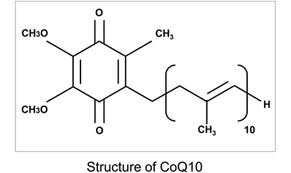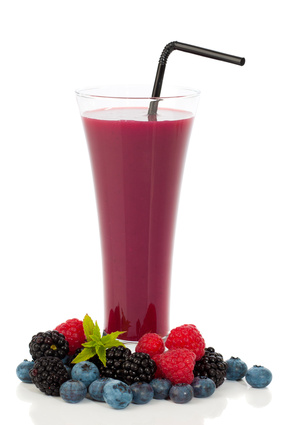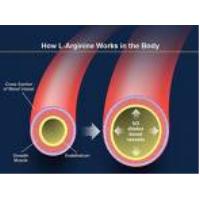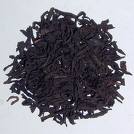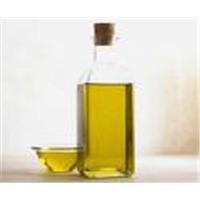A new treatment for high blood pressure could be on the horizon after British Heart Foundation-funded scientists today revealed how a molecule found in red wine causes drops in blood pressure. The study, published in the journal Circulation, sheds light on how the compound could help scientists combat heart and circulatory diseases.
Resveratrol is a compound produced by the skins of certain fruits in self defence against insects, bacteria and fungi. It is best known for its presence in grapes and red wine. The compound has been touted as an elixir capable of combating several diseases including cancer, dementia and heart and circulatory diseases. However, despite exciting findings of benefits in cell and animal studies, so far scientists have been mostly unable to effectively translate these findings into treatments for human disease. In addition, the exact mechanisms behind resveratrol’s effects have not been understood.
Researchers from King’s College London gave mice with induced high blood pressure 320mg/kg of resveratrol in their diet for 15 days. The blood pressure of mice fed resveratrol in their diet dropped by around 20mmHg compared to mice fed a normal diet.
The researchers showed that resveratrol caused the blood vessels of the mice to relax, and blood pressure to drop, by oxidising a protein called PKG1a in the blood vessel wall. They then showed that resveratrol works in the same way in smooth muscle cells from human blood vessels.
According to the researchers, no current blood pressure lowering medications target this pathway and the findings could lead to the development of new drugs. The findings have also revealed that resveratrol, previously labelled an antioxidant, acts as an oxidant to lower blood pressure.
The team have suggested that the blood-pressure lowering effects of resveratrol might actually be amplified in people with heart and circulatory disease. In order to oxidise PKG1a, resveratrol has to be activated by free radicals first, which are found at higher concentrations in heart patients.
The findings do not mean the public should start drinking more red wine. For a human to consume the same doses of resveratrol used in the study, they would need to drink around 1,000 bottles of red wine a day. The researchers explain that such high doses of resveratrol were needed because in its current form resveratrol does not dissolve well and is broken down by the body before it can reach its target in the blood vessel wall.
Future drug developments may rely on altering the chemical structure of resveratrol to make it easier to dissolve and more resistant to breakdown, to ensure more of the compound reaches the target cells. Scientists may also develop entirely new drugs, which mimic the effects of resveratrol.
Dr Joseph Burgoyne, Senior Lecturer in Cardiovascular Sciences at King’s College London who led the study said:
“We’re slowly realising that oxidants aren’t always the villain. Our research shows that a molecule once deemed an antioxidant exerts its beneficial effects through oxidation. We think that many other so-called ‘antioxidants’ might also work in this way.
“Our work could lay the foundations for chemically altering resveratrol to improve its delivery to the body, or designing new, more potent drugs which use the same pathway. In the future, we could have a whole new class of blood pressure drugs.”
Professor Metin Avkiran, Associate Medical Director at the British Heart Foundation said:
“Unfortunately, this isn’t the all clear to open a bottle of merlot. To get the human equivalent dose of resveratrol used here, you’d need to drink an impossible amount of red wine every day.
“This study reveals the surprising way in which resveratrol works and opens up the possibility of new blood pressure drugs which work in a similar way. The findings bring us a step closer to tackling this ‘silent killer’ which puts people at risk of having a devastating stroke or heart attack.
“Although you can buy resveratrol supplements, the best way to keep your blood pressure under control is through a healthy lifestyle, a balanced diet and taking any medicines prescribed by your doctor.”
Background facts:
There are around 14.4 million adults in the UK with high blood pressure, with an estimated 6-8 million who are undiagnosed or uncontrolled. High blood pressure, or hypertension, is a major risk factor for heart and circulatory diseases including strokes and heart attacks.
It’s thought that significant numbers of people who are prescribed medications for high blood pressure do not take them.
During May Measurement Month, the BHF is encouraging the public to get to know their numbers. A normal blood pressure is less than 140/90mmHg. For more information, please visit our website.
To request interviews or for more information please contact the BHF press office by emailing newsdesk@bhf.org.uk or calling 020 7554 0164. (07764 290 381 – out of hours).
About the British Heart Foundation:
One in four of us in the UK and one in three globally die from heart and circulatory diseases. That’s why the British Heart Foundation funds world‐leading research into their causes, prevention, treatment and cure. Advances from our research have saved and improved millions of lives, but heart diseases, stroke, vascular dementia and their risk factors such as diabetes still cause heartbreak on every street. With the public’s support, our funding will drive the new discoveries to end that heartbreak. Find out more at bhf.org.uk


